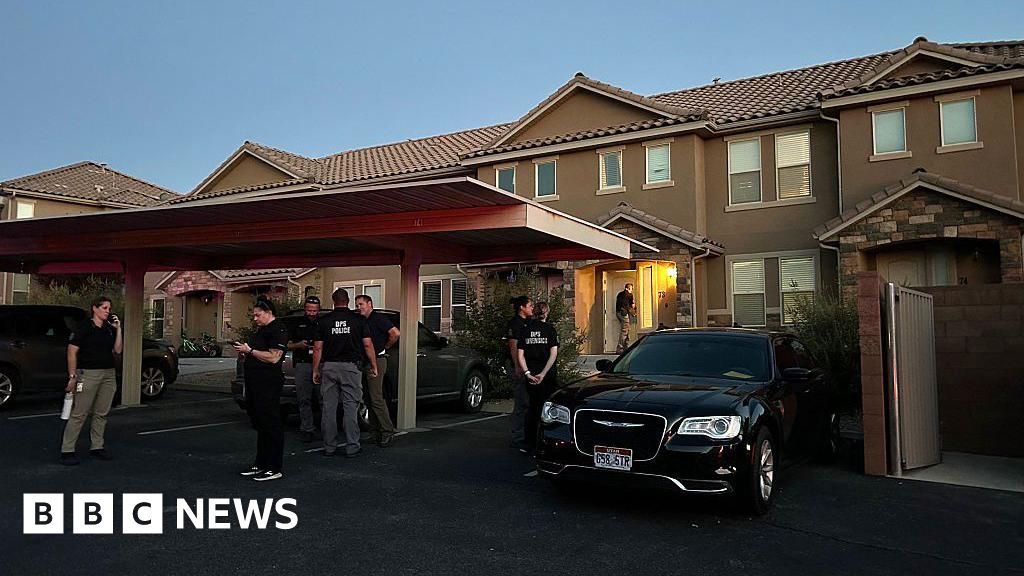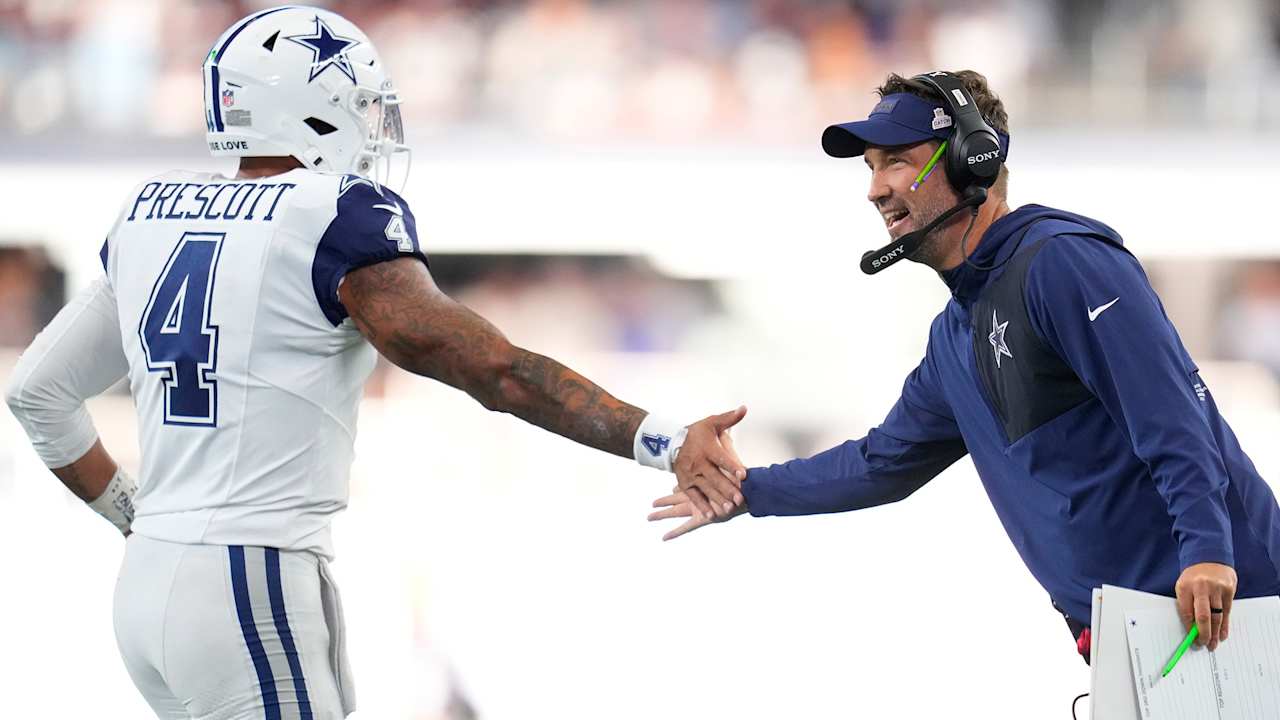The Tragic Shooting of Charlie Kirk: Updates and Impact
#shooting #investigation #motive #gun_violence #mental_health

Introduction
The tragic shooting of Charlie Kirk has left many in shock and searching for answers. Utah Governor, Spencer Cox, recently shared new details about the case, shedding light on the investigation and motive behind the killing.
Investigation Updates
According to Cox, the investigation is still ongoing and authorities are working tirelessly to piece together what led to the fatal shooting. Based on witness accounts and evidence collected at the scene, it is believed that the shooter had a personal connection to Kirk, making this a targeted attack.
In addition, Cox revealed that the suspect had a history of mental health issues, raising questions about the accessibility and effectiveness of mental health resources in the community.
Motive and Impact
As the investigation continues, many are left wondering what could have motivated such a heinous act. Some speculate that it could have been a result of a personal grudge or deep-seated anger. However, regardless of the motive, the impact of this tragic event has left a community in mourning and a family without their loved one.
It also brings to light the larger issue of gun violence and the need for stricter laws and measures to prevent such tragedies from occurring in the future.
About the People Mentioned
Charlie Kirk
Charlie Kirk is a prominent American conservative activist and the founder of Turning Point USA, a national student movement dedicated to promoting free markets and limited government. Born in 1993, Kirk co-founded Turning Point USA in 2012 at the age of 18, alongside Bill Montgomery. The organization has grown significantly, with a presence on over 3,000 high school and college campuses across the U.S. and more than 650,000 lifetime student members[2][3]. Kirk has been a prolific media presence, appearing thousands of times on various platforms, including Fox News and The Washington Post. He was named to the Forbes "30 under 30" list and became the youngest speaker at the 2016 Republican National Convention. He also served as the opening speaker at the 2020 RNC[2]. In addition to his activism, Kirk is an author, having written several books, including "The MAGA Doctrine," which became a best-seller on Amazon and The New York Times. His most recent book, "Rightwing Revolution," was released in 2024[2]. Kirk's involvement in politics extends beyond Turning Point USA. He was active in Bruce Rauner's successful 2014 gubernatorial campaign in Illinois. Rauner, who later became a financial supporter of Turning Point USA, praised Kirk's activism[3]. Kirk's activities have been controversial, drawing both support and criticism. Recently, Kirk's life was tragically cut short, and the FBI is investigating his death, offering a reward for information leading to the arrest of those responsible[3]. Despite the controversy surrounding his views and actions, Kirk remains a significant figure in conservative American politics.
About the Organizations Mentioned
Utah Governor
The **Utah Governor's Office** is a pivotal organization in the state's governance structure, led by the Governor of Utah, currently Spencer Cox. As the chief executive of the state, the Governor plays a multifaceted role, overseeing a wide array of state agencies and departments, ensuring they operate efficiently and in accordance with state law[1][2]. The office is responsible for proposing legislation, managing the state budget, and representing Utah on national and international stages[1][2]. The Governor also serves as the commander-in-chief of the Utah National Guard and has the power to issue executive orders, which can address issues such as disaster relief and policy initiatives[2]. ### History and Key Achievements While specific historical details about the organization are not widely documented, the office of the Governor has evolved significantly over time, with powers expanding in areas like veto authority and budget management[5]. Notable achievements under recent governors include landmark changes in water law and conservation efforts, as well as significant tax cuts[6]. For instance, Governor Cox implemented substantial tax reductions and advanced water conservation strategies during his tenure[6]. ### Current Status Currently, the Governor's Office is focused on economic development, promoting Utah as a hub for business and innovation. The state has seen growth in tech industries, with the Governor playing a key role in attracting investment and fostering a favorable business environment[2]. The office also plays a crucial role in responding to crises and emergencies, ensuring public safety and well-being[2]. ### Notable Aspects One of the most notable aspects of the Utah Governor's Office is its role in shaping state policies and laws. The Governor's veto power and ability to call special legislative sessions allow for significant influence over the legislative process[1][4]. Additionally, the Governor's involvement in national policy discussions helps advocate for Utah's interests at the federal level[2]. Overall, the Governor's Office is central to Utah's governance, driving economic growth, public policy, and state development
Community
The organization "Community" broadly refers to entities that leverage technology to foster engagement, collaboration, and efficient operations within nonprofit and community-based sectors. While no single organization named "Community" emerges clearly from the search results, the concept encompasses community management platforms and community-based organizations (CBOs) that utilize advanced technologies to enhance social impact. **What "Community" Does:** Community organizations primarily focus on creating social value by connecting members, facilitating communication, and managing resources effectively. These organizations adopt tools such as AI-driven chatbots, virtual assistants, and data analytics to automate routine tasks, predict member behavior, and personalize engagement. Virtual Reality (VR) and Augmented Reality (AR) are also emerging to provide immersive experiences for events and learning within communities[1]. Nonprofits and CBOs use technology for project management, donor and volunteer management, financial accounting, and activism, enabling them to fulfill missions more efficiently[2][3][4]. **History and Evolution:** Community-based organizations have evolved from traditional grassroots entities to digitally-enabled groups that integrate Geographic Information Systems (GIS) and sophisticated data management tools. These technologies support enhanced data sharing and analysis, critical for fundraising and program development[4]. Nonprofits historically faced challenges with limited budgets for technology upgrades but are increasingly embracing digital transformation initiatives to expand reach and improve workflow[2][6]. **Key Achievements and Notable Aspects:** The integration of technology has allowed nonprofits and communities to: - Expand their audience reach and impact through digital engagement platforms like CommUnity and Hivebrite[3]. - Increase efficiency and reduce operating costs via automation and streamlined communication tools[6]. - Enhance data security and risk mitigation strategies to protect sensitive information[6]. - Deliver immersive community experiences using VR/AR technologies[1]. **Current Status:** Organizations focused on community-driven missions continue to adopt tailored IT solutions provided by technology partners like Coforge, which offers secure, scalable systems supporting nonprofits’ digital transformations[
















